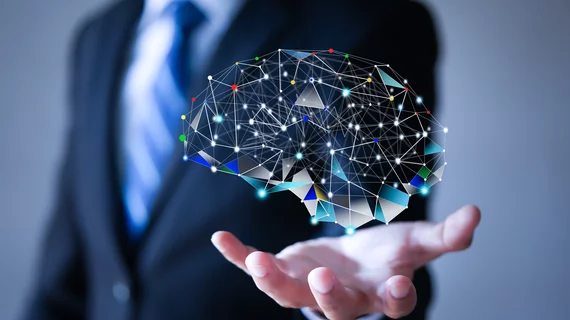How will AI affect the future of psychiatry?
Psychiatrists are skeptical AI will have a significant impact on the way mental health is treated around the world, according to new survey results published in Artificial Intelligence in Medicine. There are still certain ways, however, they think AI will be able to contribute to the practice of psychiatry.
“Despite lively and ongoing debate, limited attention has been paid to the views of practicing physicians on the impact of AI on medical professions,” wrote P. Murali Doraiswamy, MD, Duke University School of Medicine, and colleagues. “This is especially relevant in mental health care which depends on long-term, empathetic relationships between physicians and highly vulnerable patients, and in light of the flood of mental health apps available for download.”
The study’s authors surveyed nearly 800 psychiatrists from 22 different countries. While 64% of respondents were white, approximately 70% were men. Data was collected in the spring and summer of 2019.
Overall, 48.7% of psychiatrists said they believe AI technologies will have no influence, or only a minimal influence, on their specialty in the next 25 years. Another 47% said their jobs may see a moderate change, and 3.8% said AI could replace them altogether.
Respondents were asked multiple questions about which tasks related to their job AI might impact the most. For instance, 83% said AI would most likely never be able to provide empathic care “as well as or better than the average psychiatrist.” On a similar note, 67% of respondents said AI won’t be able to provide mental status examinations and 58% said it wouldn’t be able to evaluate “acute homicidal thoughts.”
“We speculate there may be several explanations for the skepticism expressed by the doctors,” the authors wrote. “One possibility is they are cautious of the hype around AI, especially given AI’s many boom and bust cycles over the past five decades, and placing high value on human interaction and personalized professional analysis. While a growing number of research studies have documented the utility of AI tools for mental health diagnosis and care, we are still far away from an AI that accurately recognizes and understands the full range of human emotions and mental illnesses.”
There are other tasks, on the other hand, that psychiatrists believe AI will be able to handle. While 83% of respondents said it should be able to take on documentation, another 54% believed technological advances would be able to “fully replace human physicians when it comes to synthesizing information to reach diagnoses.”
The researchers also noted that 40% of respondents are uncertain the potential benefits of AI being used in mental health would outweigh the risks associated with such a concept.

